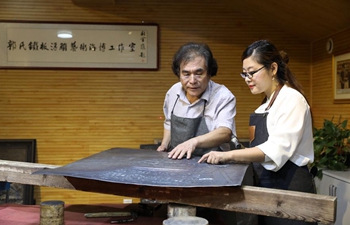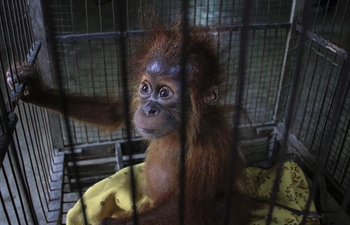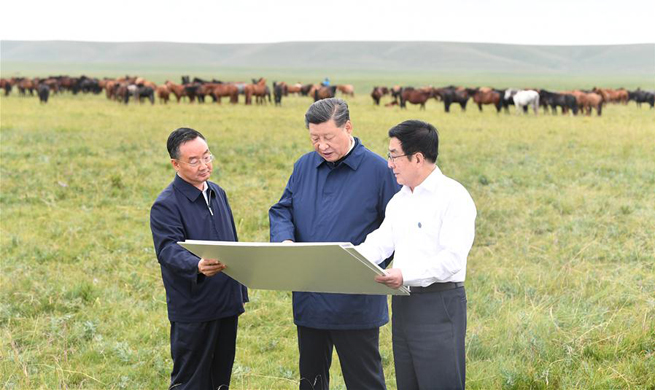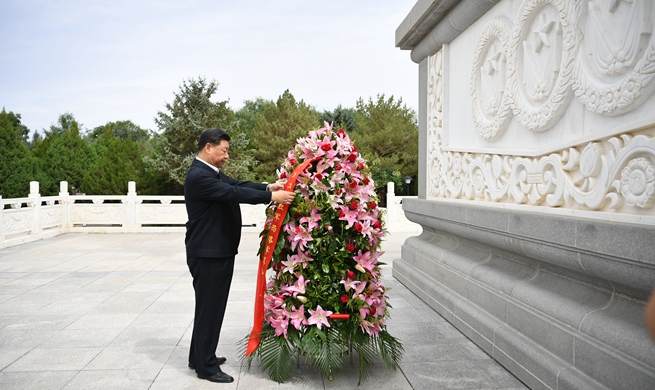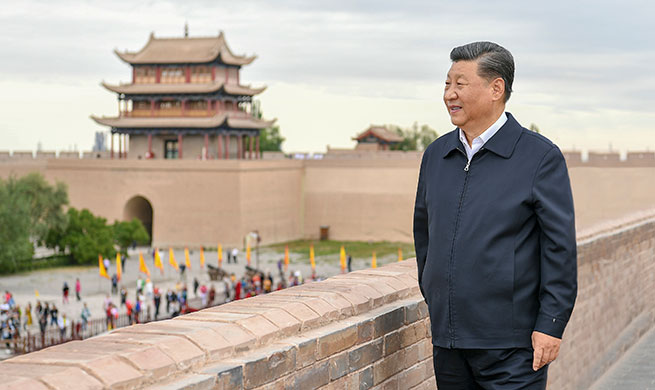HOHHOT/HAIKOU, Aug. 20 (Xinhua) -- In the early morning, Zhang Yukui turns on the loudspeaker on his pedicab and travels through the village of Xiaomiaozi in the city of Chifeng, north China's Inner Mongolia Autonomous Region.
"Garbage sorting benefits the nation and the people, dear fellow villagers, we must sort our garbage," it blares.
Hearing the loudspeaker, the villagers ran out with large bags of sorted garbage. "Garbage sorting is a good thing and we're used to it now," said 70-year-old Bi Yuliang. "The roads were scattered with weeds, used bottles and torn cardboard, now they're as neat as in the cities. Whenever I go out, I'm delighted."
Every household in the village has three dustbins to classify their rubbish, and they are also given a brochure offering guidance on garbage sorting.
Zhang Yukui works as a cleaner in the village. He awards credits to each household based on their performance on garbage classification. These credits can be used to redeem commodities such as laundry detergent, rice and flour.
"Everyone now does a good job in garbage sorting," said Zhang, who added that the garbage will then be transported to the nearby landfill or garbage-disposal site.
"The village generates about three to four cubic meters of garbage every day, most is disposable. The furnace can deal with refuse at a ratio of 200:1, which means a large quantity of waste will end up in a small pile of dust," said Wang Chenglong from the operating company of the garbage-disposal site.
Xiaomiaozi village is among a growing number of villages across the country that have taken action after the State Council published an action plan in February 2018, aiming to improve the countryside environment in the next three years. Garbage classification is an important part of achieving the goal.
More than 2,800 km away, in Hudan Village of the southern Chinese resort island of Hainan, garbage sorting is also a hot topic among the 200 plus villagers.
Yun Tianhong, 70, volunteered to become an environmental inspector. Every day, he walks around and posts sanitation problems he spots on the village's WeChat group. A villager working outside once called back at night, reminding the family "not to fall behind" after being exposed on the chatting group.
"All of our weekly meeting is focused on garbage classification. The discussion can be as detailed as the sorting of coconut shells and jackfruit skin," said Yun Dade, a local official.
"Even the kids know they need to sort their garbage," said local resident Yun Cuilan. "Whenever my grandson calls me, he always begins with the question 'Grandma, are you the best at garbage sorting here?'"
Now Hunan village has become a model in rural environmental management and many have come to learn from their experience.
"We don't just shout out slogans, we put garbage sorting into practice," said Yun Tianlong, a local businessman. "Local officials took the lead and the villagers volunteered to join in, this is how we succeeded."






